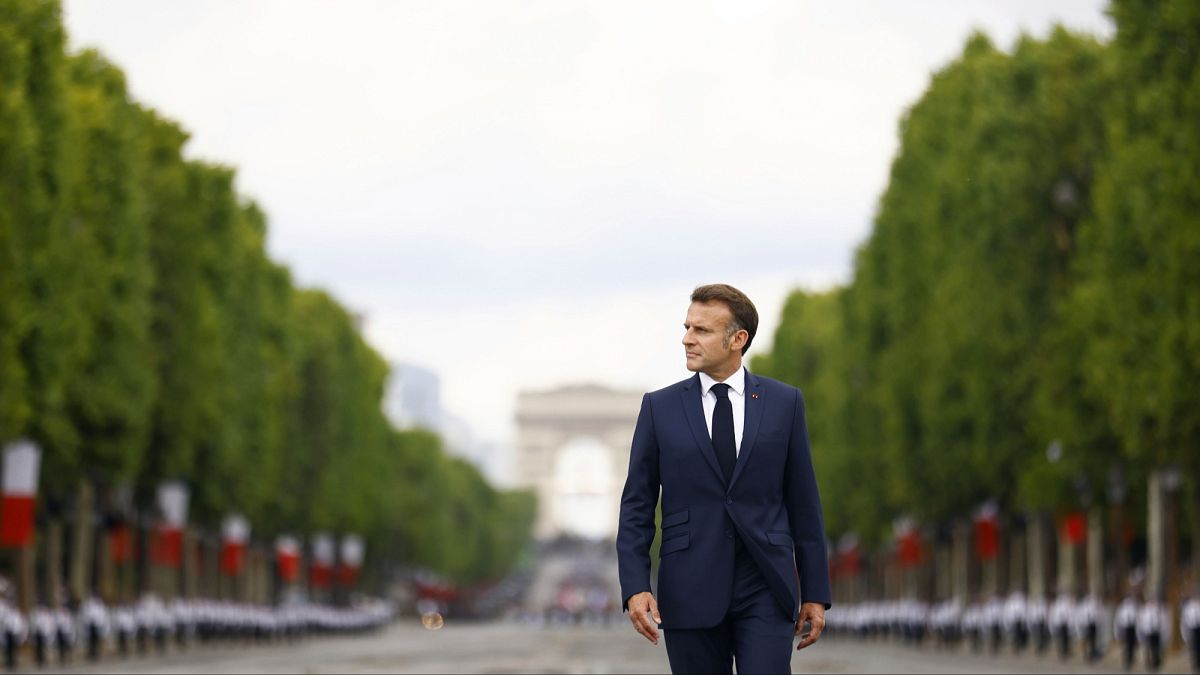

In a rapidly changing political landscape, France and Ukraine are navigating significant shifts that have the potential to reshape their roles on the global stage. With French President Emmanuel Macron moving toward recognizing Palestine and Ukraine’s leader responding to civic calls for anti-corruption reform, both nations are in the midst of transformative processes that may influence their futures significantly.
French President Emmanuel Macron has taken a notable step toward the potential recognition of Palestine. This move is seen by observers as a strategic attempt to push European allies such as the United Kingdom, Germany, and Italy to reinvigorate efforts for a two-state solution between Israel and Palestine—an initiative that has seen little progress in recent years. Macron’s stance highlights France’s commitment to addressing longstanding issues in the region and could galvanize broader continental support for the recognition of Palestinian statehood.
Across the English Channel, political dynamics are also evolving. The United Kingdom’s Labour Party leader, Keir Starmer, faces increasing pressure from within his ranks to recognize the state of Palestine. This call for recognition has grown louder amidst reports of Israel withholding aid to Gaza, stirring humanitarian concerns. Deputy Prime Minister Angela Rayner and Home Secretary Yvette Cooper are among prominent figures advocating for quicker recognition, aligning themselves with France’s approach. This internal push illustrates a potential shift in the UK’s Middle Eastern policy, emphasizing human rights and the long-term stability of the region.
Meanwhile, Ukraine is undergoing its own significant political adjustments. President Volodymyr Zelenskyy is making efforts to amend a controversial anti-corruption law following nationwide protests. These demonstrations underscore the Ukrainian public’s desire for transparent governance and build on the country’s ongoing efforts to align more closely with European Union standards and expectations. The EU is closely monitoring these developments as contacts between Brussels and Kyiv persist, aiming to ensure the independence of Ukraine’s anti-corruption bodies.
President Zelenskyy’s decision to pivot and address the concerns raised by Ukrainians reflects a commitment to maintaining unity and listening to public opinion—an essential aspect of his strategy to foster EU integration. The move appeases domestic critics and highlights Ukraine’s dedication to democratic principles and rule of law, pivotal in the country’s quest for closer ties with Europe.
As these events unfold, both France and Ukraine demonstrate a focused approach to international and domestic challenges. Macron’s proactive stance on Palestine and Zelenskyy’s responsiveness to public demand illustrate a broader trend: the willingness of leaderships to adapt and engage with complex issues with an eye toward constructive resolution. Their actions could set a precedent for other nations grappling with similar geopolitical and internal challenges.
In navigating these challenges, the focus remains not on division but on seeking solutions that promote peace, stability, and engagement. For France, this gesture of recognizing Palestine symbolizes advocating for peace in a historically contentious area, while for Ukraine, refining the anti-corruption framework signifies a step toward a transparent and fair governance structure. Both nations are using their platforms to initiate change that could echo well beyond their borders, encouraging others to address issues with a balanced and thoughtful perspective.
Overall, these developments remind us of the power of diplomacy and reform-driven politics, underscoring the potential for transformative progress when nations commit to addressing global and local challenges with openness and resolve. As these initiatives take shape, the world watches with hopeful anticipation of the positive changes they may inspire.
Source: {link}
